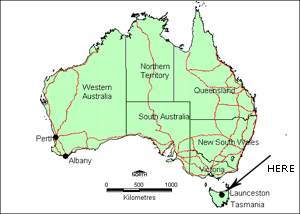Three River Theatre
12 Angry Men
Review
by Leigh Oswin
14 September 2016
Three River Theatre is well known in the Launceston Theatre Scene for producing compelling ensemble theatre and the latest offering of Reginald Rose’s 12 Angry Men continues to deliver.
Originally staged by Three River in 1986, Director Stan Gottschalk’s decision to revisit arguably the greatest jury room drama written has been handled masterfully with some important nods to the original production, including rotating the role of the Guard amongst the original cast members. I was fortunate enough to witness Frank Madill’s performance on preview night. Nostalgia is a powerful tool in the arts and this production marries the classic tale well with a contemporary view on themes we continue to see played out in Australian communities and internationally. Justice, democracy, the ethical dilemma implicit in the onus of proof and social inequality are all debated through the lens of what would initially appear to be a cut and dried murder trial.
The crux of the success of this work rests on the ensemble as a whole, cleverly directed and choreographed by Gottschalk and Associate Director Stuart Loone. We witness a play containing 13 men who are in the most part present on stage for the duration of the two acts, no small feat indeed but the blocking and staging marry together in a natural performance that is authentic and avoids distraction.
Each Juror has their moment to shine and all rise to the challenge when the debate and argument centres on them. Ross Marsden is terrifying as the rampant and prejudiced Juror 10 with characterisation one can view as a nod to the contemporary antics of Donald Trump, ultimately his fall from power as the group revolt against his prejudices is a moment for the audience to savour.
Daniel Lizotte as the protagonist of the piece, the one juror with enough self-confidence to stand in the face of 11 guilty votes is a welcome return to the Launceston stage after a hiatus from the boards. Lizotte’s surety, calmness and poise in delivery is refreshing amongst a room of strong opinions and large characters.
In opposition to Lizotte for much of the show, however also with a compelling natural delivery is Jeff Hockley. The pragmatic and logical argument for guilt is encapsulated well in Hockley’s portrayal of Juror 4, allowing the audience a likeable and understandable voice to balance Lizotte.
Jan Gluszyk’s portrayal of the antagonistic Juror 3 is a performance that grows as the show continues. The challenge for Gluszyk, and any actor tasked with the abrasive Juror 3, is to engender relatability with the audience without jeopardising the brutish, bull nature of a man who wants the accused dead. This relatability is key later in the piece and must be wrung from a character built for the audience to dislike.
It is in relatability, in the use of pathos that this show succeeds. As an audience we are taken on a journey of recognising ourselves by turns in each of the 12 men battling out a decision of life or death in the jury room.
Cheyne Mitchell’s jovial, extroverted, baseball loving larrikin is recognisable as the love to hate character we encounter and then attempt to avoid at the extended family barbecue. Similarly, we see ourselves in Gerard Lane’s foreman, struggling to lead without offending and playing the oft impossible game of keeping everyone happy, he does however have the added challenge of managing an unmanageable jury process.
The reserved and timid Juror 2 is played well by Mitchell Langley and the honesty and ‘salt of the earth’ nature of Antony Butchart’s interpretation of house painter and Juror 6 is a good contrast and nod to the ‘every man’.
Rounding out the dozen are further strong performances from Travis Hennessy as the Eastern European immigrant with a precision worthy of a watch maker. Marcus Bower as the pendulum of indecision, forever wavering, depending on the argument at hand, between a guilty or innocent verdict, and Kieran Phillips as the Juror with perhaps the most in common with the accused and some poignant moments of vulnerability.
Lastly, and an audience favourite during the preview, is deft stage hand Barry Olding’s performance as the elderly Juror 9. For the vociferous and brutal likes of Marsden, Mitchell and Gluszyk to receive their comeuppance at points from the frail strength with which Olding imbues the articulate gent are moments of humour, shock and relish.
As minor points the opening procession and ensuing individual conversations would benefit from a ramp of pace and overlap whilst still maintaining the gravitas of the decision to be made. The ensemble would benefit as a group to play to the back row and lift eye lines to allow us at the back of the steep Earl Arts seating in on their emotional interplay and similarly there are moments where the more reserved or calm Jurors played by Phillips, Bower and Lane would benefit from ensuring they’re audible in the back particularly in asides and coming out of vigorous debate.
Aesthetically the production elements are strong, led by Flocky Bock, Gottschalk and Loone’s stage design presenting a tired and obviously publicly (under)funded judicial system. The pervasive heat of the New York summer is well managed in Hockley’s dual role as lighting designer. Costumes throughout, whilst simple, remain true to the 1950s period and give us early insight into the status and social welfare of each juror even before they’ve spoken.
An enjoyable, well-crafted and precise production with powerful nods to nostalgia and moral dilemma delivering a masterclass in great ensemble work.
Contact
You can send a message to us at: stan@stanspage.com

